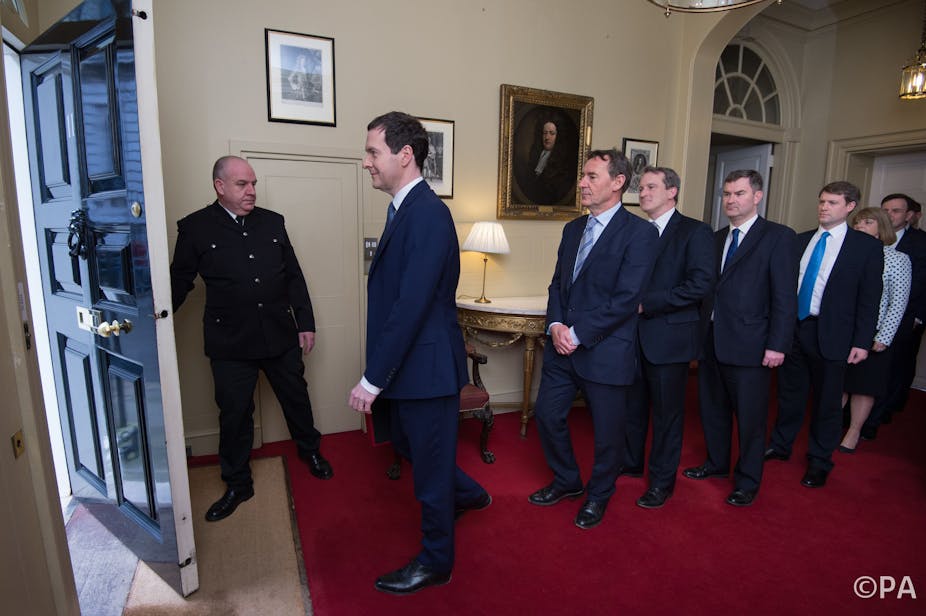Twelve minutes into his “big statement” budget, Chancellor George Osborne made a strong plea for the British public to vote to remain in the European Union in the June referendum.
Citing the Office for Budget Responsibility, he argued that voting to leave would result in “disruptive uncertainty”. It would affect interest rates, the exchange rate, and possibly international investment decisions.
In fact, the OBR report is less robustly certain of the outcome of a potential Brexit vote than the chancellor suggested in his speech. It notes that the evidence is scant, and that any effects would take time to be felt, and would depend on the subsequent negotiation process.
There is certainly more rhetoric than hard fact in much of the business case for membership to date. However, the OBR’s assessment of the available evidence confirms that markets do not like the state of uncertainty surrounding Britain’s position on the EU.
Mood music
The chancellor’s eighth budget was squarely aimed at lifting business confidence and creating a more positive discourse about the state of the economy than we have heard from him over the past few months.
The purpose of this shift is not only to convince voters that the government’s plan is working, but also to help create the underlying mood music for a “remain” vote in June. Existing polling evidence suggests attitudes to European integration become more positive when voters feel the economy is doing well: optimism will win the day.
The emphasis on small businesses is also significant. They have emerged as more sceptical of the benefits of membership than large multinationals. The BBC has recently picked up on disquiet among small businesses, which previous Chambers of Commerce and other reports have been signalling for some time.
However, aside from the general mood music, the government’s commitment to EU membership has something of a hollow ring to it – and the same was true of the budget.
Osborne did not just refer to his engagement in favour of membership, but his commitment to a “reformed” EU. This discourse of reform begs the question of how the government is going to reform the EU, when the consensus around the February negotiations is that the prime minister was unable to make fundamental changes.
And it was particularly striking how little the EU seemed to matter to the government’s economic policy in this budget. The chancellor was happy to namecheck the OECD when he talked about clamping down on tax avoidance, but why not refer to the EU’s attempts to bring the multinationals to account?
The Conservatives have long sought to emphasise Britain’s strength as a go-it-alone economy. It featured heavily in the party’s pre-election manifesto and in most budgets before now. It would have been hard for Osborne to drop this narrative completely, but it seems more at odds than ever with a political commitment to EU membership.

